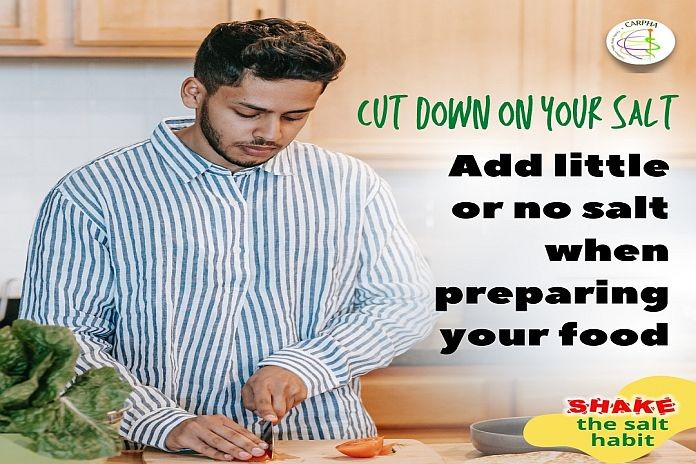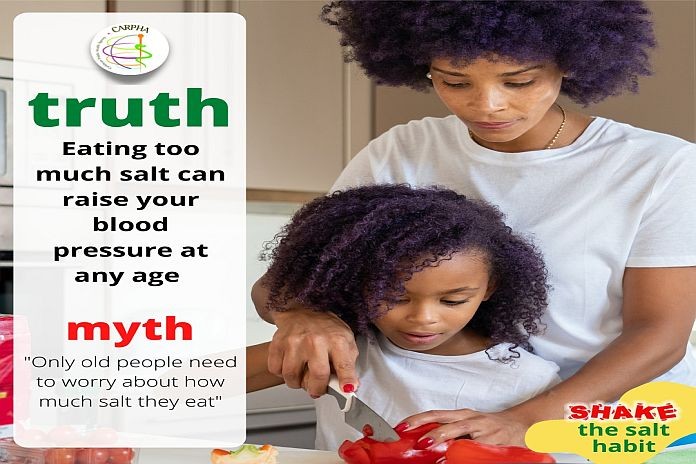PORT OF SPAIN, Trinidad – “Too much salt in our diets can harm our health, leading to unnecessary deaths from heart attacks and strokes, and other non-communicable diseases (NCDs),” stated Dr Joy St. John, executive director at CARPHA, in observance of World Salt Awareness Week.
The Caribbean is well known for its high dietary consumption of fats, salts and sugars predominantly obtained from processed and ultra-processed foods. Sodium consumption in the Region has been determined to average 9-12 grams per day. This is twice the World Health Organization recommended amount of less than 5g/salt or 1 teaspoon (<2g of sodium) per adult per day, from all sources.
CARPHA Member States have committed to the World Health Organisation voluntary target to reduce sodium (salt) consumption by 30 percent by 2025. To support Member States’ initiatives to reduce sodium consumption in their populations, CARPHA developed a Regional Framework for Sodium Reduction in Populations. Lowering sodium use in children’s diets today can help prevent heart disease later in life, especially for those who are overweight. The Regional framework intended for policymakers, manufacturers, health professionals, and relevant multisectoral stakeholders from public, private and civil society, envisions a healthy and vital Caribbean people whose average sodium intake falls below the current global target of 5g per day for adults.

This year, the Caribbean Public Health Agency joins forces with the regional and international communities to observe World Salt Awareness Week from March 14 to 20 with the slogan: “Shake the Salt Habit”.
“Let us try to shop smart and cook smart. We encourage you to add more flavour, use less or no salt when cooking. Try using fresh herbs and seasonings. Limit the consumption of salty snacks,” says Dr Tamu Davidson, head of the chronic disease, and injury department. She added “Take the time to carefully read the nutrition labels on food products. They can help you with choosing healthy food options and keep a check on foods you are eating that are high in salt.”
Kids Can Cook Too produced by CARPHA provides recipes with little or no salt. A major component of the CARPHA 6-Point Policy Package is the implementation of Front of Package Labelling so consumers can be empowered to make healthful food purchasing choices.
The reduction of salt in processed foods, coupled with mandatory nutrition labelling are part of the dietary considerations that have to be implemented. Governments and food manufacturers are urged to create supportive environments to enable lower salt options to be provided, implement front of package labelling to provide easy-to-read-and-understand information for consumers and reformulate food products to contain less salt.





